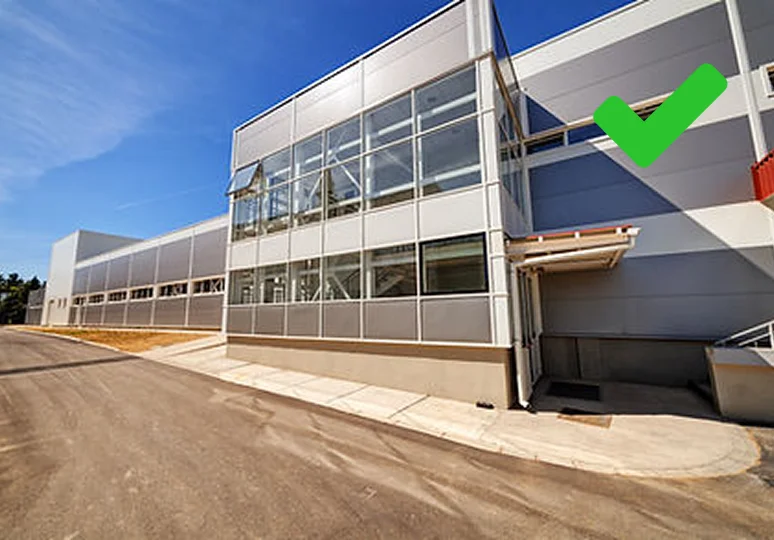― SMSF Guide
The Ultimate SMSF Property Investment Guide
A detailed guide to unlocking the power of your super and investing in property the smart way.
― Why matters
Why This
Guide Matters?
Investing in property through an SMSF is a powerful way to build wealth and secure your financial future. This guide walks you through everything you need to know—from choosing the right property to maximizing your returns.
What is an SMSF?
A Self-Managed Super Fund (SMSF) is a private superannuation fund that gives you full control over how your retirement savings are invested. Unlike traditional super funds, an SMSF allows you to invest in property, shares, and other assets, tailoring your strategy to your financial goals.
Why Australians Are Using SMSFs to Invest in Property?
More Australians are turning to SMSFs for property investment because it offers greater control, tax advantages, and the ability to leverage (borrow money) to buy property. Unlike traditional funds, where your investments are managed for you, an SMSF lets you take charge and build wealth through real estate.
Key Benefits of SMSF Property Investment
More control over investment choices
Higher returns through property growth & rental income
Significant tax benefits (15% tax rate & CGT discounts)
Wealth creation & retirement security


Understanding SMSFs & Property Investment
How Does a Self-Managed Super Fund Work?
One of the biggest differences between an SMSF and other super funds is that SMSF members are usually trustees. This means they have full control over managing the fund and its investments. However, trustees must comply with all laws and regulations, including residency and management requirements set by the ATO.
Who is in Charge of the Investments?
As an SMSF trustee, you are responsible for making all investment decisions. This includes choosing assets, ensuring compliance with tax laws, and managing risks. Given the complexity of SMSF rules, it’s essential to stay informed and seek expert advice when needed.
For more information on choosing a financial adviser, visit the Australian Securities and Investments Commission (ASIC) website.
SMSF vs. Traditional Super: What’s the Difference?
While traditional super funds invest in shares, bonds, and managed funds, an SMSF gives you direct control over your investments, including property. SMSFs also offer unique tax benefits and asset protection advantages.
What Types of Properties
Can You Buy with an SMSF?

Residential investment properties

Commercial properties

Industrial properties
Not allowed: Your primary residence, holiday homes, or properties rented to family members
The 96% Rule: Why most properties on realestate.com.au & domain can’t be purchased with an SMSF
Many SMSF investors assume they can buy any property on the market, but the reality is that 96% of listed properties don’t meet SMSF lending or compliance requirements. Choosing an SMSF-approved property ensures rental stability, high yield, and compliance with ATO regulations.
Compare Your SMSF With Other Super Funds
SMSFs are different from other types of superannuation funds. Know the differences before you open an SMSF. The most significant differences are membership and trustees, liability, investments, insurance, and regulation.
SMSFs can have a maximum of four members who are trustees of the fund. Other super funds generally have no limit on the number of members.
SMSF trustees have complete responsibility for compliance with laws and regulations. With other super funds, a professionally licensed trustee assumes the compliance risk.
With an SMSF, you have a choice of investments. With other funds, you don't have much choice about how the funds are invested.
Insurance for SMSF trustees is optional and can be very expensive. Other super funds offer discounted insurance to their members.
SMSFs are regulated by the Australian Taxation Office (ATO). Other super funds are regulated by the Australian Prudential Regulation Authority (APRA).

Compare Your SMSF
With Other Super Funds
SMSFs are different from other types of superannuation funds. Know the differences before you open an SMSF. The most significant differences are membership and trustees, liability, investments, insurance, and regulation.
SMSFs can have a maximum of four members who are trustees of the fund. Other super funds generally have no limit on the number of members.
SMSF trustees have complete responsibility for compliance with laws and regulations. With other super funds, a professionally licensed trustee assumes the compliance risk.
With an SMSF, you have a choice of investments. With other funds, you don't have much choice about how the funds are invested.
Insurance for SMSF trustees is optional and can be very expensive. Other super funds offer discounted insurance to their members.
SMSFs are regulated by the Australian Taxation Office (ATO). Other super funds are regulated by the Australian Prudential Regulation Authority (APRA).

Consider Costs, Time, and Skills
Do you want to invest in real estate?
Real estate is a profitable and safe investment. Still, it requires the right team of professionals because a mistake can cost you thousands of dollars and several years to recover the money. Investing to save and multiply your money is one of the phrases that we defend the most from Delphi and co . The real estate market is one of the most important investments to reach the highest profitability. For that reason, we must dedicate the necessary time to study in detail all the variables that influence the profitability of real estate investments.
Variables to consider in a house
Facilities in the area: parks, schools, public transportation, etc.
Study the current demand in the area, both for renting and buying and selling.
Study the possible revaluation of the property: are there many buildings under construction?
The flexibility of the seller when negotiating.
To know the taxes and expenses of that specific property.
Current economic cycle.
Can I buy residential properties with my SMSF?
The first thing to know is that you can buy new residential properties within your SMSF. You can also borrow with the fund (using a non-recourse loan) to help you purchase it, or you can buy it as tenants in common with your SMSF (that's, you say 50% in your name and 50% under the SMSF).
You can do it regarding self-managing investment properties in your SMSF. Still, you must make sure all your paperwork is in order. You can even charge your SMSF for managing the properties, but this should be at market rates.
Is there a formula for analyzing whether an investment property is a good investment?
You should generally know your purchase costs, including price, legal fees, and taxes.
Other things to consider include estimates for any repairs or renovations. In addition, you should look at the long-term growth in your area and use this as an estimate of your potential growth over the period you wish to hold the property. Moreover, we estimate the agent's fees if you were to sell and the depreciation of the building.
Delphi and Co have the best real estate experts. We can help you choose the best properties to safely invest in the real estate market and earn high returns.
Best way to buy an investment property in a self-managed Superfund (SMSF)
Suppose you are wondering how best to structure the purchase of an investment property in a self-managed Super Fund (SMSF). In that case, there are two good strategies you could implement to buy an investment property in your SMSF include:
Use SMSF funds to buy 50% of the investment property (or a smaller percentage if you do not have sufficient funds in the SMSF) and borrow the other 50% in your name.
Purchase the investment property through a Unit Trust.
The result will be that the SMSF will end up with more and more units. Moreover, you will end up with fewer and fewer units until the SMSF owns all of them and 100% of the actual ownership of the property.
How to avoid common pitfalls when investing in property with your SMSF
Investing in property with your SMSF can be a complex process and there are several common pitfalls that you should be aware of to avoid:
Not conducting proper due diligence
Overextending your SMSF
Not understanding the rules and regulations
Choosing the wrong property
Not seeking professional advice
By avoiding these common pitfalls and seeking professional advice, you can maximise the potential returns on your SMSF property investment while minimising risk.

